If you didn’t know it already, we love reading and we love books — in our offices, in our tweetstreams; on our podcast, in our newsletters; in our house, with a mouse, here or there… we just love them everywhere.
So we polled our partners for their most powerful, profound, impactful, or simply “the best” books they read in 2016. In case you need a good book to curl up with over the holidays, here’s the resulting list of book recommendations. Surprisingly (since this was a blind poll), there were very few overlaps: There were only two double mentions (different biographies about Edison and about Hamilton); there were only three audio books; and the list ended up being about a quarter fiction.
…from Lauren Berson, market development team:
The Skies Belong to Us: Love and Terror in the Golden Age of Hijacking by Brendan I. Koerner. “Between 1961 and 1972, 159 commercial flights were hijacked in the US. This book is a non-fiction account of early days of plane commercialization, and the countless hijackings that occurred. It took the FAA over 10 years to implement and require metal detectors, as they thought that would slow down airport check-ins, and could not foresee hijacking as a means to injure others. Fascinating on all accounts.”
Spring Chicken: Stay Young Forever (or Die Trying) by Bill Gifford. “It’s a dive into research on aging, and how to slow down the process. It is surprisingly humorous as the author employs some self deprecation as a mid-40s man who isn’t in the best shape. It’s fascinating to understand what’s proven (intermittent fasting, cold water plunges) and what really isn’t (calorie restriction) as it relates to slowing down aging.”
…from Parker Brown, market development team:
Shoe Dog: A Memoir by Phil Knight. “Amazing story of how Knight built the most iconic sports brand in the world from his parent’s garage with a $50 loan from his father.”
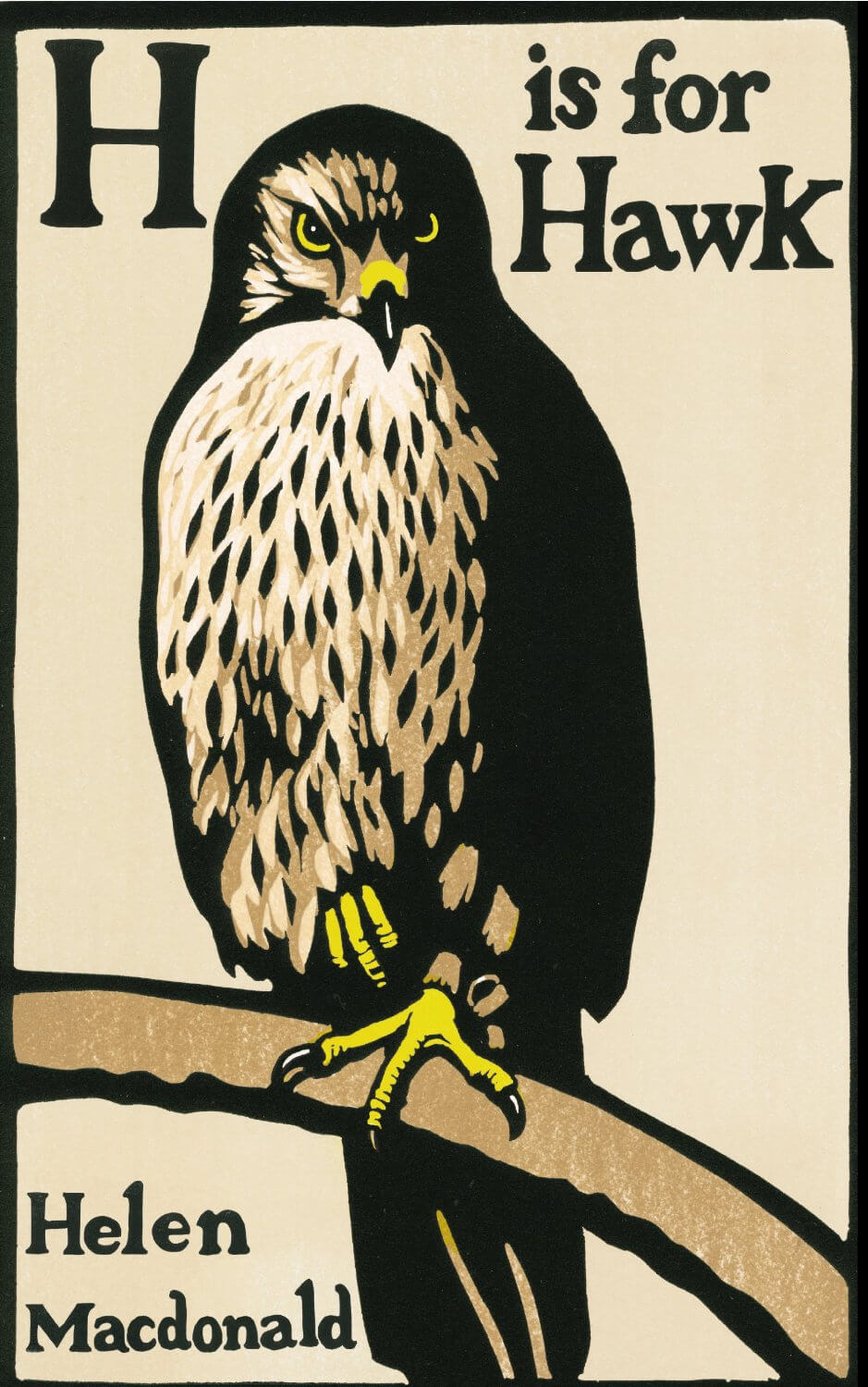 …from LeeAnn Caballero, events (marketing team):
…from LeeAnn Caballero, events (marketing team):
H is for Hawk by Helen Macdonald. “Poetic and heartbreaking. A visceral account of loss, grief, and discovery, framed within the wild process of modern-day falconry. Sounds obscure and pretty far out there, but completely relatable and deeply moving!”
…from Daniel Chen, internal engineering/ software development team:
The Master Algorithm: How the Quest for the Ultimate Learning Machine Will Remake Our World by Pedro Domingos. “Good bird’s eye view of machine learning, different schools of thought, and where it is now, by an accomplished professor.”
…from Frank Chen, deal, research, and investing team:
Cyberspies: The Secret History of Surveillance, Hacking, and Digital Espionage by Gordon Corera. “A well-researched history of the cat-and-mouse game of computer security. Hear the hidden story of how an analyst at GCHQ invented public-key crypto before Diffie-Hellman and RSA, how British spooks inspect Huawei products before deployment, and how British agents launched the first corporate espionage campaigns against China to learn the secrets of growing tea leaves.”
…from Sonal Chokshi, editorial (marketing team):
Alexander Hamilton by Ron Chernow; audio book. “Political history books tend to bore me, but after I saw the play [and yes I have heard about that Odd Mom Out episode;)], I just had to read this. (And listen to the soundtrack, and the mixtape, and read his letters.) But the biography is astounding in its parallels to today: For instance, the scenes where Hamilton and Burr exchange letters before their duel reminded me so much of the relationships between media, PR, and social media (via letters vs. blog posts/tweets). Hamilton was also the ultimate immigrant, who ‘rose up’ but then also literally ‘threw away his shot’ in what has proven to be the longest game ever. And he was the ultimate startup founder, with an incredible combo of grand vision + mundane execution: He spent more time his first year as Treasury Secretary writing letters about lighthouses than anything else since trade was such a huge source of revenue for the nascent economy.”
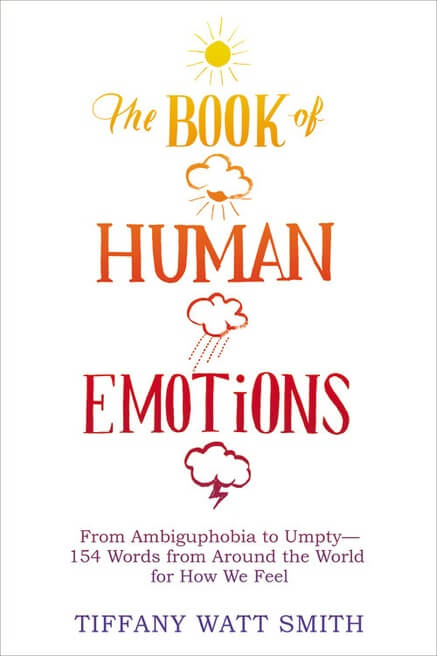 The Book of Human Emotions by Tiffany Watt Smith. “If you believe words shape our thoughts (and vice versa), then they should shape our feelings (and understanding of those feelings), too! This book defines 154 words for how we feel, from around the world — examples under ‘A’ alone include the Sanskrit-based ‘abhiman’ to the Japanese ‘amae’. I just love the precision of language in here for something that’s actually very fuzzy.”
The Book of Human Emotions by Tiffany Watt Smith. “If you believe words shape our thoughts (and vice versa), then they should shape our feelings (and understanding of those feelings), too! This book defines 154 words for how we feel, from around the world — examples under ‘A’ alone include the Sanskrit-based ‘abhiman’ to the Japanese ‘amae’. I just love the precision of language in here for something that’s actually very fuzzy.”
His Dark Materials Omnibus (of The Northern Lights/Golden Compass, The Subtle Knife, and The Amber Spyglass) by Philip Pullman. “I read this many years ago, but being able to download it all at once on my Kindle meant easily reading it again recently and I was kind of amazed at how much I missed the first few times around. Different eyes with time (and maturity), I guess… Hate steampunk, but love fantasy, so I do still recommend this thought provoking book; seems relevant to our times too somehow.”
Language Making Nature by David Lukas. “I don’t even know how to describe this book. The author describes it as ‘a naturalist’s walk through the language-making landscape’ … but even that doesn’t do it justice! It’s such an odd, completely unexpected book at every page turn and I just love it. (Try reading the chapter on productivity alone if you’re going to skip through; it’s seriously unlike anything else you’ve read).”
…from Matthew Colford, policy and regulatory affairs team:
The Enemy Within: The McClellan Committee’s Crusade Against Jimmy Hoffa and Corrupt Labor Unions by Robert F. Kennedy. “Much has been written about Robert Kennedy and his time as Attorney General, U.S. Senator, and presidential candidate. But little is popularly known about his time as the Chief Counsel of the McClellan Committee and his public showdowns with one of the most fearless leaders in the Teamsters Union. This books is a gripping, firsthand account.”
The Fractured Republic: Renewing America’s Social Contract in the Age of Individualism by Yuval Levin, “who articulates a straightforward and original vision for a small-c conservative American government that relies on civil society and local communities to innovate around the country’s most pressing problems”.
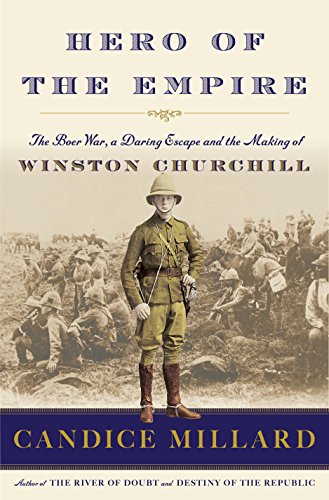 Hero of the Empire: The Boer War, a Daring Escape, and the Making of Winston Churchill by Candice Millard. “A fascinating yet little known chapter from Winston Churchill’s life that in many ways set the stage for him to become the golden boy of British politics.”
Hero of the Empire: The Boer War, a Daring Escape, and the Making of Winston Churchill by Candice Millard. “A fascinating yet little known chapter from Winston Churchill’s life that in many ways set the stage for him to become the golden boy of British politics.”
Hillbilly Elegy: A Memoir of a Family and Culture in Crisis by J.D. Vance. “It’s very simple: if you want to understand Appalachia; disdain for elites; and why Ohio, Michigan, and Pennsylvania all voted for Donald Trump, read this book.”
Shantaram: A Novel by Gregory David Roberts. “Shantaram is nominally a fictional account of the crime underworld in late 20th century Bombay told from an Australian fugitive’s perspective… only the author is himself an actual former Australian fugitive who cut his teeth as a crime lord in India. So it reads more like a memoir, with incredible historical vignettes, such as the Soviet-Afghan war, masterfully woven in.”
When Breath Becomes Air by Paul Kalanthi. “Perhaps one the most beautiful portraits of what it means to be human, written from the perspective of a doctor who is simultaneously playing God and facing down his own inevitable death.”
…from Stacy D’Amico, market development team:
Home by Harlan Coben. “It’s a mystery…”
…from Chris Dixon, general partner:
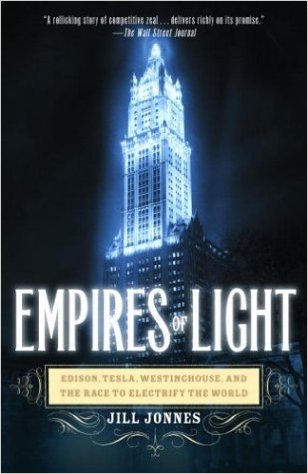 Empires of Light: Edison, Tesla, Westinghouse, and the Race to Electrify the World by Jill Jonnes
Empires of Light: Edison, Tesla, Westinghouse, and the Race to Electrify the World by Jill Jonnes
The Inevitable: Understanding the 12 Technological Forces That Will Shape Our Future by Kevin Kelly
I Invented the Modern Age: The Rise of Henry Ford by Richard Snow
A Triumph of Genius: Edwin Land, Polaroid, and the Kodak Patent War by Ronald K. Fierstein
The Universal Computer: The Road from Leibniz to Turing by Martin Davis
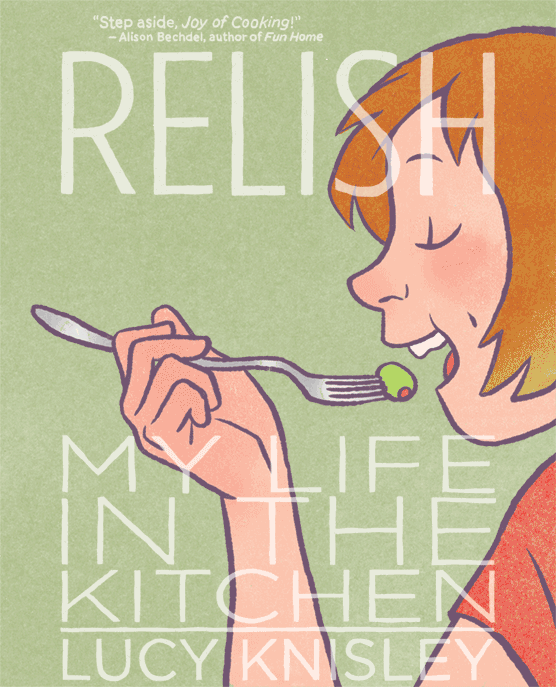
image credit: Lucy Knisley
…from Grace Ellis, communications (marketing team):
Relish: My Life in the Kitchen, written and illustrated by Lucy Knisley. “It’s a GRAPHIC NOVEL about FOOD. Enough said.”
…from Kristina Graci-deLuna, tech talent & people practices team:
Small Great Things by Jodi Picoult. “This novel pulls you in and is a page-turner; it was hard to put down. I love how Jodi Picoult’s books are about moral and ethical dilemmas that really cause the reader to think about how they would handle things. This book is about race and discrimination.”
…from Ben Horowitz, a16z co-founder:
Probably Approximately Correct: Nature’s Algorithms for Learning and Prospering in a Complex World by Leslie Valiant. “I love grand unifying theories and this was particularly relevant to the work we do here.”
…from Dave Jagoda, internal engineering/ software development team:
Swimming Across: A Memoir by Andrew S. Grove. “This is an amazing true story. I don’t want to spoil any of it since you should just read it.”
…from Jeff Jordan, general partner:
Future Crimes: Inside the Digital Underground and the Battle for Our Connected World by Marc Goodman. “Very accessible read on the current state of Internet security and crime. Much is horrifying.”
Hamilton: The Revolution by Lin-Manuel Miranda and Jeremy McCarter. “I am obsessed with all things Hamilton!”
…from Connor McCarthy, market development team:
The Structure of Scientific Revolutions by Thomas S. Kuhn. “A compelling and new account of scientific progress and paradigms shifts in knowledge. Kuhn’s account should be especially interesting for folks at a16z given that the mission of our work is finding and supporting individuals whose work and products are ‘paradigm shifts’ in technology. This work succinctly articulates the truth of change that we all are lucky enough to experience in our daily work!”
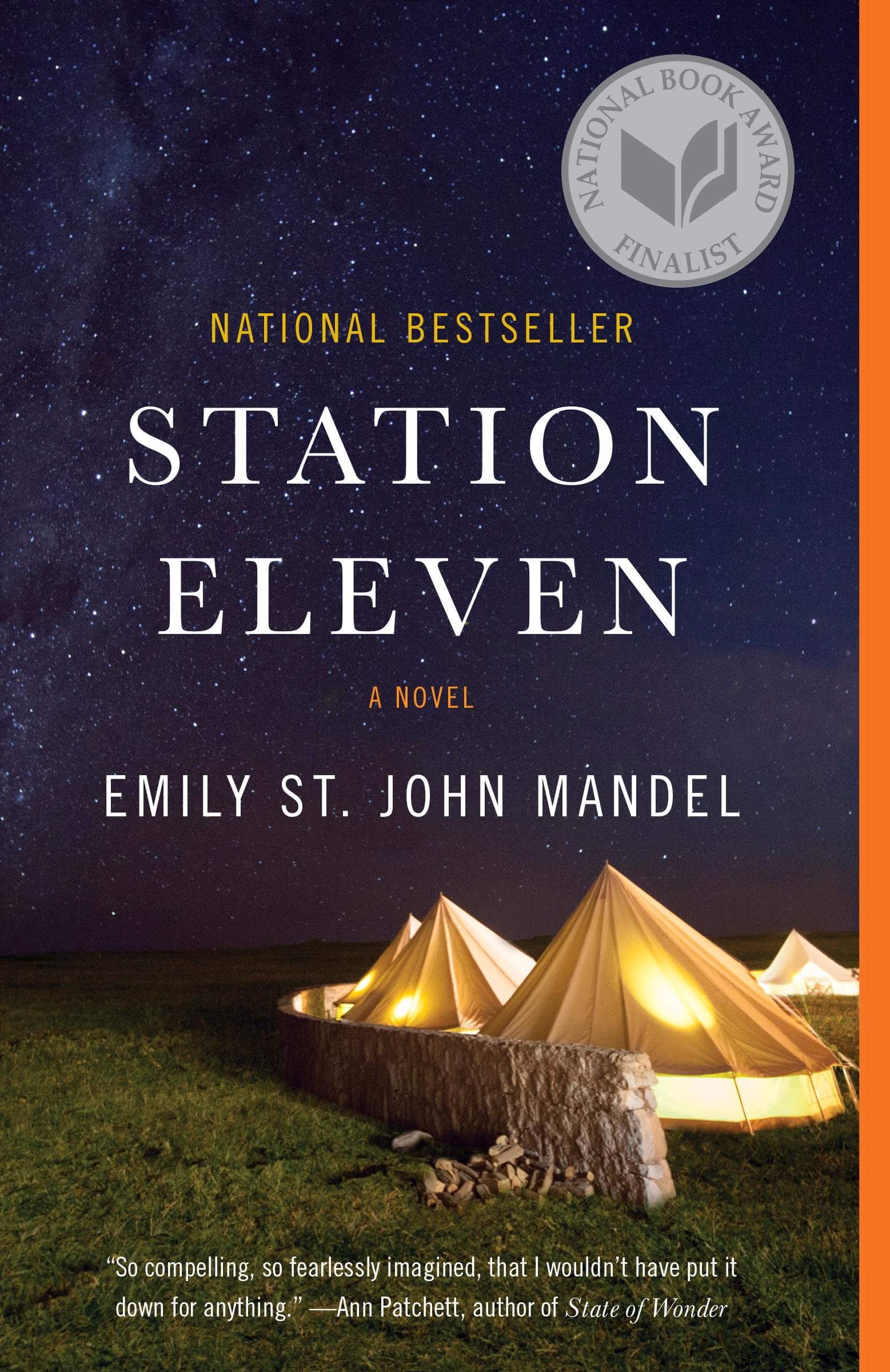 …from Elizabeth Ocken, events (marketing team):
…from Elizabeth Ocken, events (marketing team):
Station Eleven: A Novel by Emily St. John Mandel. “Couldn’t put it down. My Kindle was full of notes and passages I wanted to come back and re-read. SO captivating and well-written with a story and characters I didn’t expect.”
…from John O’Farrell, general partner:
Just Mercy: A Story of Justice and Redemption by Bryan Stevenson. “A devastating expose of our discriminatory criminal justice system, and the inspiring story of one man’s ability to make a difference.”
Sapiens: A Brief History of Humankind by Yuval Noah Harari. “A highly original and immensely enjoyable history and exploration of what it means to be human.”
…from Caitlin Roberson, market development team:
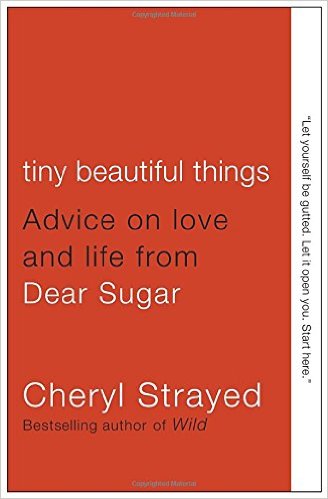 Tiny, Beautiful Things: Advice on Love and Life from Dear Sugar by Cheryl Strayed. “I started this book one Saturday morning and didn’t get out of bed until 8 pm that night. I’ve since read it three more times. Her prose is incredible and palpably human.”
Tiny, Beautiful Things: Advice on Love and Life from Dear Sugar by Cheryl Strayed. “I started this book one Saturday morning and didn’t get out of bed until 8 pm that night. I’ve since read it three more times. Her prose is incredible and palpably human.”
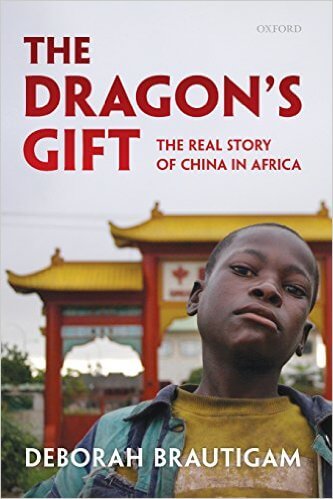 …from Nigel Robinson, tech talent & people practices team:
…from Nigel Robinson, tech talent & people practices team:
Breaking Rockefeller: The Incredible Story of the Ambitious Rivals Who Toppled an Oil Empire by Peter B. Doran. “Before reading this book, I didn’t fully understand the role the oil industry played in the world as an organizing force — not only for industry but for politics. Many of the international relationships we take for granted today came about in the race for black gold.”
The Dragon’s Gift: The Real Story of China in Africa by Deborah Brautigam. “It elucidated the relationship between Africa and China, the mechanisms of China’s foreign aid ventures, and how different it is from the West in these respects.”
…from Kyle Russell, deal, research, and investing team:
Superforecasting: The Art and Science of Prediction by Philip Tetlock and Dan Gardner. “Gives useful frameworks for making predictions.”
…from Ian Shannon, legal team:
Born to Run by Bruce Springsteen. “Engaging, almost stream-of-consciousness autobiographical narrative from Jersey’s favorite son. Highly recommend the audiobook (read by Bruce himself).”
…from Angela Strange, deal, research, and investing team:
Between the World and Me by Ta-Nehisi Coates. “Look at your world through others’ eyes. This is a powerful account by Coates, a former writer for the Atlantic, as he looks at the ‘American Dream’, and how this dream is denied to so many Americans in a well-written series of letters to his son.”
Red Notice: A True Story of High Finance, Murder, and One Man’s Fight for Justice by Bill Browder. “A compelling account of the rise and fall of the at one time largest foreign investor in Russia, Bill Browder, former Stanford GSB. Part biography, part history, Red Notice is a real-life account of the business environment in the time leading up to Putin.”
…from Jeff Stump, executive talent team:
What the Dog Saw: And Other Adventures by Malcolm Gladwell. “Great stories and what we can learn from them.”
…from Hanne Tidnam, editorial (marketing team):
Matterhorn: A Novel of the Vietnam War by Karl Marlantes. “A gripping, gut-wrenching door stop of a novel that plunges you into the realities and brutalities of the Vietnam war in visceral detail. It’s such an action-packed epic that it kind of makes you feel guilty it’s such a page-turner at the same time. Marlantes, a Vietnam veteran, experienced much of the horror he writes about; he searched for a publisher for this monumental work for many years, finally publishing as his debut novel in 2010. It sounds cliche, but Matterhorn manages to truly capture that deep, moving mystery of war: why soldiers will die for each other.”
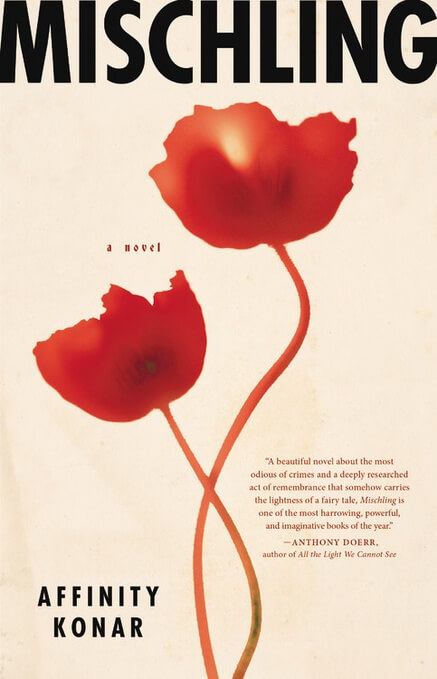 Mischling by Affinity Konar. “How this can be anyone’s first book is mind-blowing. Very, very difficult to read, this intense novel about two twins who are taken to Mengele’s ‘zoo’ during World War II inhabits the hideous, surreal nightmare that was Auschwitz — but still somehow remains a soaring love letter about sisterhood, twinship, family. A book so incredibly human it’s also really about how fiction can be just as powerful as non-fiction in helping us to not forget.”
Mischling by Affinity Konar. “How this can be anyone’s first book is mind-blowing. Very, very difficult to read, this intense novel about two twins who are taken to Mengele’s ‘zoo’ during World War II inhabits the hideous, surreal nightmare that was Auschwitz — but still somehow remains a soaring love letter about sisterhood, twinship, family. A book so incredibly human it’s also really about how fiction can be just as powerful as non-fiction in helping us to not forget.”
The Signature of All Things: A Novel by Elizabeth Gilbert. “I must have picked this up in bookstores dozens of times — and put it straight down again, turned off by all things Eat, Pray, Love, because ugh. Finally caved in in desperation before a flight, and am so glad I did. This finely wrought, overflowing, deep novel about a scientist arriving at the theory of evolution through the study of moss is so small yet grand at the same time. So internal and so awesome (old fashioned sense of the word). It’s like looking through both ends of a microscope at a woman’s life — Alma Whittaker — one of the most peculiar, quirky, and deeply human female characters I’ve met. A rich novel about science and love, and creating a life built on your own terms.”
…from Michael Wee, deal, research, and investing team:
Creativity, Inc: Overcoming the Unseen Forces That Stand in the Way of True Inspiration by Ed Catmull with Amy Wallace. “Part bio, part management.”
Poor Charlie’s Almanack: The Wit and Wisdom of Charlie Munger edited by Peter D. Kaufman. “Fun gems from one of the best investment thinkers!”
…from Margit Wennmachers, marketing team:
Lolita by Vladimir Nabakov, audio book read by Jeremy Irons. “You can feel the simultaneous agony and despicable nature of Humbert Humbert’s journey. When Irons says her name it is beautiful — in a way that makes your skin crawl.”
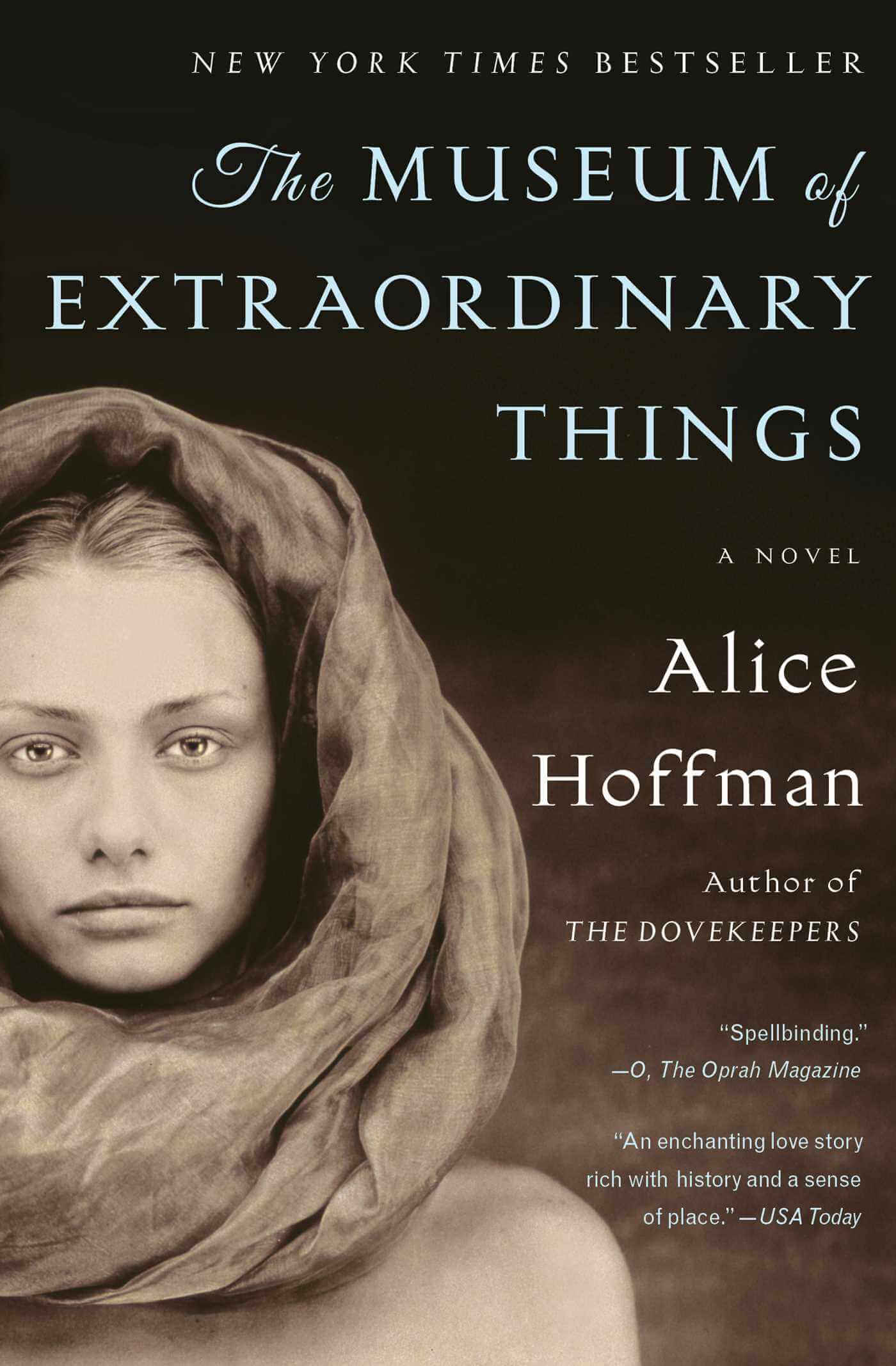 The Wizard of Menlo Park: How Thomas Alva Edison Invented the Modern World by Randall E. Stross. “Shows the perfect blend of invention, luck, timing, and business.”
The Wizard of Menlo Park: How Thomas Alva Edison Invented the Modern World by Randall E. Stross. “Shows the perfect blend of invention, luck, timing, and business.”
…from Boris Wertz, board partner:
The Museum of Extraordinary Things: A Novel by Alice Hoffman. “One of the most beautiful novels I ever read.”
-

a16z editorial

